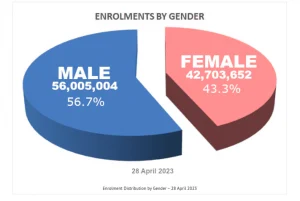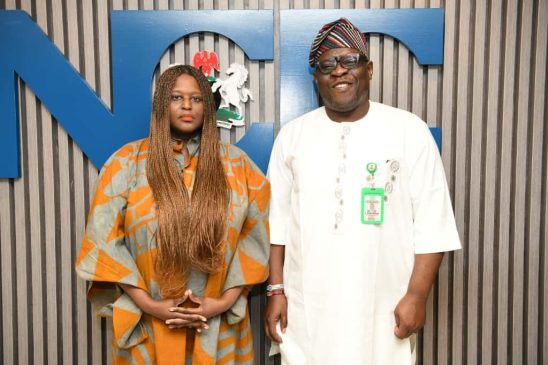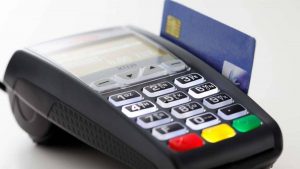Key highlights
- Enrolments for the National Identification Number (NIN) increased to 98.7 million in April.
- This pushed the country further to the World Bank’s target under the ID4D project which set a goal of achieving 148 million NIN enrolments by June 2024.
- Nigeria may, however, not meet the target judging by the rate of monthly growth it recorded in the past years.
Nigeria moved closer to the World Bank’s target under the Digital Identification for Development (ID4D) project as enrolments for the National Identification Number (NIN) increased to 98.7 million in April.

Under the project terms, Nigeria is expected to have issued 148 million NIN by June 2024. However, despite the steady monthly increase in enrolments, the country may still miss the target.
Barely a year before the deadline, Nigeria would have to enroll and issue NIN to an additional 49.3 million people over the next 13 months plus to achieve the target. With the average of 1 million monthly enrolments recorded over the last year, hitting 148 million by June 2024 may not be feasible.
Other targets
Aside from issuing NIN to 148 million Nigerians by 2024, Banks listed other targets to include the issuance of NIN to at least 65 million female Nigerians by June 1, 2024, as well as 50 million NIN to children under 16 years of age.
However, while the data released by the National Identity Management Commission (NIMC) did not indicate the number of children that have been captured, it revealed that 42.7 million females had been issued NIN as of April 28, 2023.
- Other performance indicators set for the country include the development of pro-poor functional public and private services employing the foundational ID system for authentication and service delivery; NIN enrolments in rural areas; Government personnel trained in best practices for legal and regulatory enabling environments for foundational ID, including privacy and data protection, all of which must have been achieved by June 2024.
- Part of the project’s requirements also makes it mandatory for the country to develop “a legal and regulatory framework that adequately protects individuals’ data and privacy.”
The Project
The ID4D project, which commenced in 2019, is being financed through an International Development Association (IDA) credit of US$115 million and co-financing of US$100 million from the French Agency for Development and US$215 million from the European Investment Bank. According to the World Bank, which facilitated the loans and monitored the project, as of April 30, 2023, a total of $35.6 million had been disbursed for the implementation of the project.
The bank said the objective of the Digital Identification for Development Project for Nigeria is to increase the number of persons with a national ID number, issued by a robust and inclusive foundational Identification (ID) system, that facilitates their access to services.












+ There are no comments
Add yours